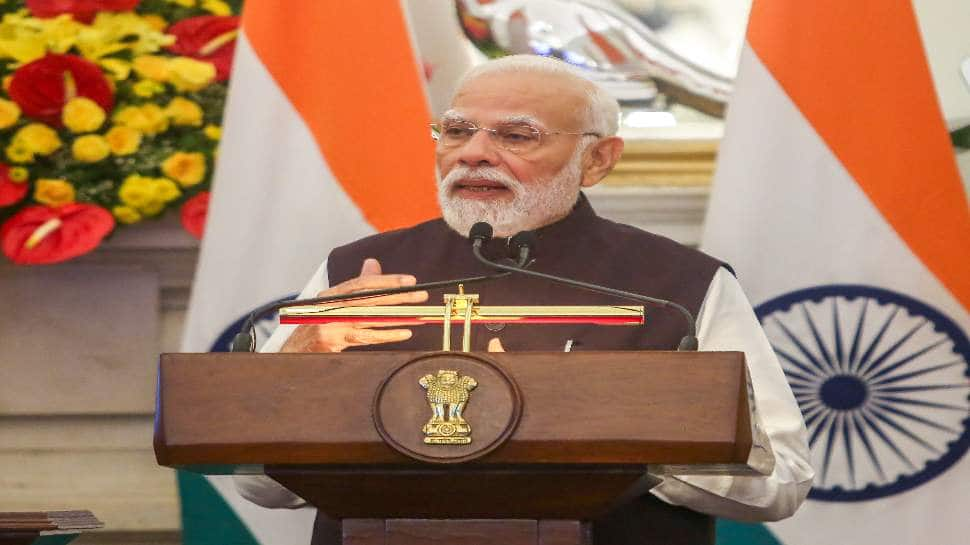Prime Minister Narendra Modi has decided not to attend the upcoming ASEAN Summit scheduled to take place in Kuala Lumpur, Malaysia, from October 26 to 28. Sources familiar with the government’s plans have indicated that this decision is primarily driven by pressing domestic commitments, including the impending Bihar state assembly elections and the observance of the major regional festival, Chhath Puja. Additionally, the absence of a significant breakthrough in ongoing India-US trade negotiations has diminished the likelihood of a high-profile in-person meeting between PM Modi and US President Donald Trump at the summit.
The ASEAN Summit had been considered a potential venue for a high-level bilateral meeting between the two leaders, especially in light of strained trade relations between India and the United States. However, the lack of progress in trade talks has led to a recalibration of priorities, with domestic political developments taking precedence. The Bihar assembly elections are of crucial importance for the ruling Bharatiya Janata Party (BJP), and the political focus in Delhi is firmly fixed on this event. Moreover, Chhath Puja, a significant festival celebrated predominantly in Bihar and neighboring states, is scheduled for the same period, and PM Modi is expected to participate in the festivities, further anchoring his presence within the country.
While PM Modi will not be physically present in Malaysia, official sources have confirmed that he will engage virtually in the India-ASEAN Summit on October 26 through teleconferencing. India’s External Affairs Minister, S. Jaishankar, is slated to represent the country at the East Asia Summit, which will take place on October 27 and 28. This arrangement ensures that India maintains its diplomatic engagement with ASEAN and regional partners despite the Prime Minister’s physical absence.
The decision to forego attendance at the ASEAN Summit also relates closely to the current impasse in India-US trade negotiations. Talks between the two countries have seen intermittent progress but have failed to yield a definitive agreement or breakthrough. Among recent diplomatic activities, Indian Commerce Secretary Rajesh Agrawal visited the United States last week to advance discussions, and PM Modi and President Trump engaged in a telephone conversation on the Tuesday preceding the summit. Despite these efforts, the dialogue has not indicated an imminent resolution.
Trade relations between India and the United States have been tense, particularly following the imposition of reciprocal tariffs by the US. Earlier, President Trump levied a 25% tariff on Indian exports and a 25% punitive duty on Indian purchases of Russian oil. These tariffs have negatively affected the competitiveness of Indian goods in the US market and led to the suspension of formal trade talks in late August. Negotiations were officially resumed in mid-September when US Assistant Trade Representative Brendan Lynch held discussions with Indian officials in New Delhi. Since then, Modi and Trump have held three telephone conversations, and the US Ambassador-designate, Sergio Gor, has visited India in an attempt to mend trade relations.
Despite these diplomatic overtures, the tone and content of the recent Modi-Trump phone call highlighted the complexities in their trade discussions. President Trump told journalists that the call involved talks about trade and reiterated his expectation that India would limit its oil purchases from Russia. Contrarily, PM Modi’s announcement on social media regarding the call made no mention of trade issues. Instead, Modi highlighted the exchange of Diwali greetings and emphasized the shared commitment of India and the United States against terrorism in all its forms. This divergence in narratives underscores the sensitive and unresolved nature of the trade discussions.
President Trump is scheduled to visit Malaysia on October 26 as part of a regional tour before heading to Japan for further diplomatic engagements. His presence at the ASEAN Summit was initially expected to provide a timely opportunity to address bilateral issues directly with PM Modi. However, with Modi’s absence and the ongoing trade stalemate, this prospect has diminished.
The timing of the Bihar elections and Chhath Puja plays a decisive role in PM Modi’s agenda. Bihar is a politically significant state, and the assembly elections are seen as a critical test for the BJP’s popularity and governance. The Prime Minister’s involvement in the election campaign is considered essential by party strategists, and this political priority has outweighed the benefits of attending the ASEAN Summit in person. Chhath Puja, a festival dedicated to the Sun God and deeply rooted in Bihar’s cultural fabric, also commands the Prime Minister’s attention. His participation in the festivities is expected to resonate positively with the electorate and reinforce his connection with the region’s traditions.
In summary, PM Narendra Modi

